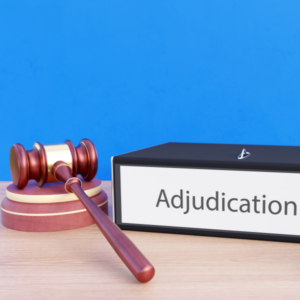One of the first questions that will arise when you are facing criminal charges in Texas is what could be your legal options to help you avoid jail time. In certain situations, the judge could place you on deferred adjudication in Texas instead of finding you “guilty”. In some other cases, a judge or a jury may find you guilty, but place you on “straight probation”.
An experienced Houston deferred adjudication attorney will explain to you the difference between probation and deferred adjudication, and discuss your best legal options. Here are the key distinctions between the two.
Probation Means Conviction (Deferred Adjudication Does Not)
Choosing the option of probation in Houston, Texas will mean that you are convicted of the crime in question. This means you will have a conviction on your record even if you do not serve jail time. Another implication would be that if you face any other criminal charges in the future, your prior conviction could be used against you to increase your penalties.
 On the other hand, if you agree to deferred adjudication, your guilty plea gets accepted, but the finding of guilt is deferred. Thereafter, if you accomplish the process according to the law, your case will be finally dismissed. In other words, there will be no conviction on your record.
On the other hand, if you agree to deferred adjudication, your guilty plea gets accepted, but the finding of guilt is deferred. Thereafter, if you accomplish the process according to the law, your case will be finally dismissed. In other words, there will be no conviction on your record.
Deferred Adjudication Carries Risk of Full Punishment (Probation Does Not)
Your Houston criminal defense attorney should alert you to the fact that in deferred adjudication if you violate the terms and conditions of the process, you are exposed to a full range of punishment.
For instance, if you have accepted a plea for four years deferred on a felony of the second degree, you could potentially face 20 years imprisonment if you are found in violation of the terms (because the punishment range for a second degree felony in Texas is 2 to 20 years).
On the other hand, if you have been placed on probation following your guilty plea, your exposure to jail time will be capped by your original plea. For example, if you pled to a six years sentence probated for three years, your maximum jail time is six years.
Probation Requires You to Do at Least Half the Time (Deferred Adjudication Does Not)
Many people may hope to seek an early termination of their probation if they sincerely follow all terms and conditions. However, according to Texas law, once you agree to straight probation, you will be required to complete at least half the time before an early termination may be decided by the judge.
 Certain time credits will also accrue while you are on probation, which can expedite your efforts to reach the halfway mark. Your Houston criminal defense attorney should inform you whether or not these credits may apply to your case.
Certain time credits will also accrue while you are on probation, which can expedite your efforts to reach the halfway mark. Your Houston criminal defense attorney should inform you whether or not these credits may apply to your case.
On the other hand, in case of deferred adjudication in Texas, there are no hard and fast rules on when you might early terminate. In this situation, knowing the judge’s informal rules in these matters is the key. Your attorney can help you obtain information on whether to or when to file an early termination in the particular court.
If you’re facing criminal charges in Texas, all hope is not lost. At Flood & Associates, our team of experienced, passionate, and dedicated DWI defense attorneys will give you the best defense possible. With an 80 percent win rate and an in-house crime lab, no one in the state of Texas compares to our resources and team. Call our team 24/7, 365 at 713-224-5529 for a free case review or use this online contact form to request a free consultation with one of our attorneys.









